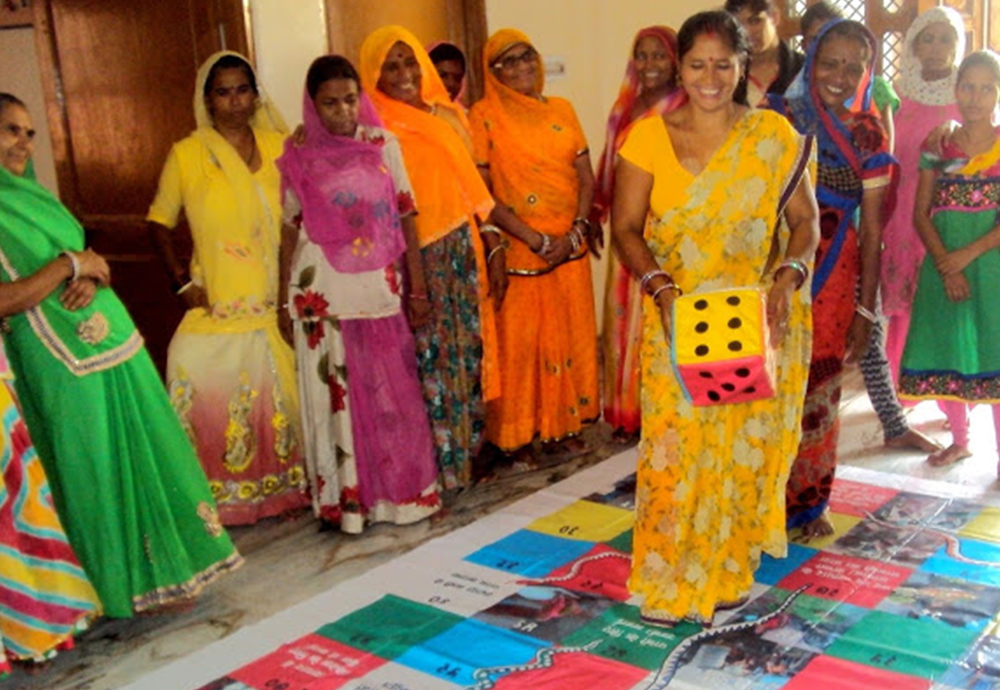
Urban Poor Learning about Climate Change by Playing Snakes and Ladders
How many of us grew up playing the Snakes and Ladders game as kids?
The gathering of family around the colorful board, the rush of joy we got when climbing a ladder, and the disappointment when we got bitten by a snake, are memories that we always cherish.
Today, this age-old game is being used by Mahila Housing Trust (MHT) – an NGO that aims to improve the habitat conditions of poor women in the informal sector – to impart messages on climate change, its adverse effects, and building climate resilience.
Lakshmi hails from a slum settlement in Bhopal called Garib Nagar. A community of 400 households, the area is severely affected by water-logging and vector-borne diseases during monsoons and water scarcity during summers. Uneducated and poor, Lakshmi was oblivious to the concept of climate change, although her community has been suffering through increasingly hot summers and heavy monsoons for years. Even after she was introduced to climate change through the community-level meetings, Lakshmi failed to link it to the water scarcity or frequent diseases that her community had to deal with. It was then that MHT introduced the Snakes and Ladders game. On the 10×10 gridded board, the snakes represented consequences of climate change such as high temperatures and reduction in ground water levels that lead to illnesses and water scarcity. And the ladders represented ways to improve their lives by making thoughtful decisions on saving and investing money on availing themselves of water supplies and education. Lakshmi thoroughly enjoyed the game. In addition to that, she also learnt about the importance of saving money, making careful decisions and thinking ahead about the future of her family. Today she understands that, “saving money is important to move forward as the change in climate and unhygienic living conditions can cause life-threatening issues. I also focus on hygiene now and regularly uses water purification tablets to cleanse drinking water.”
Urban slum settlements like Lakshmi’s are highly vulnerable to the impacts of climate change. However, the people remain completely unaware of the reasons behind the adversities they face and how they can address them. MHT uses simplified communication methods such as games, demonstrations, one-on-one meetings, videos, wall paintings and street plays to generate an interest in people and introduce the concept of climate change, its impacts and build climate resilience.
Introduced in 2016, the Snakes and Ladders game is played during training sessions and community level meetings in 105 slum settlements in India, Bangladesh and Nepal. Through the game, around 3,500 women, who otherwise would not have had any knowledge about climate change or its impacts on their day to day lives, have come to understand the true reason behind unbearable summers and monsoons, and appreciate long-term planning, and focus on healthy living.
Another community member, Babitha, has also played Snakes and Ladders multiple times. She acknowledges that in addition to keeping her entertained during her free hours, the game has also improved her understanding about her own living conditions.
She said: “I have learnt that unpurified water can cause diseases, so we have to boil it before consuming to avoid illnesses. I also learnt how plants can help deal with the rise in temperature. I share everything I learn from the meetings with my husband, and have started planting trees in our yard.”
